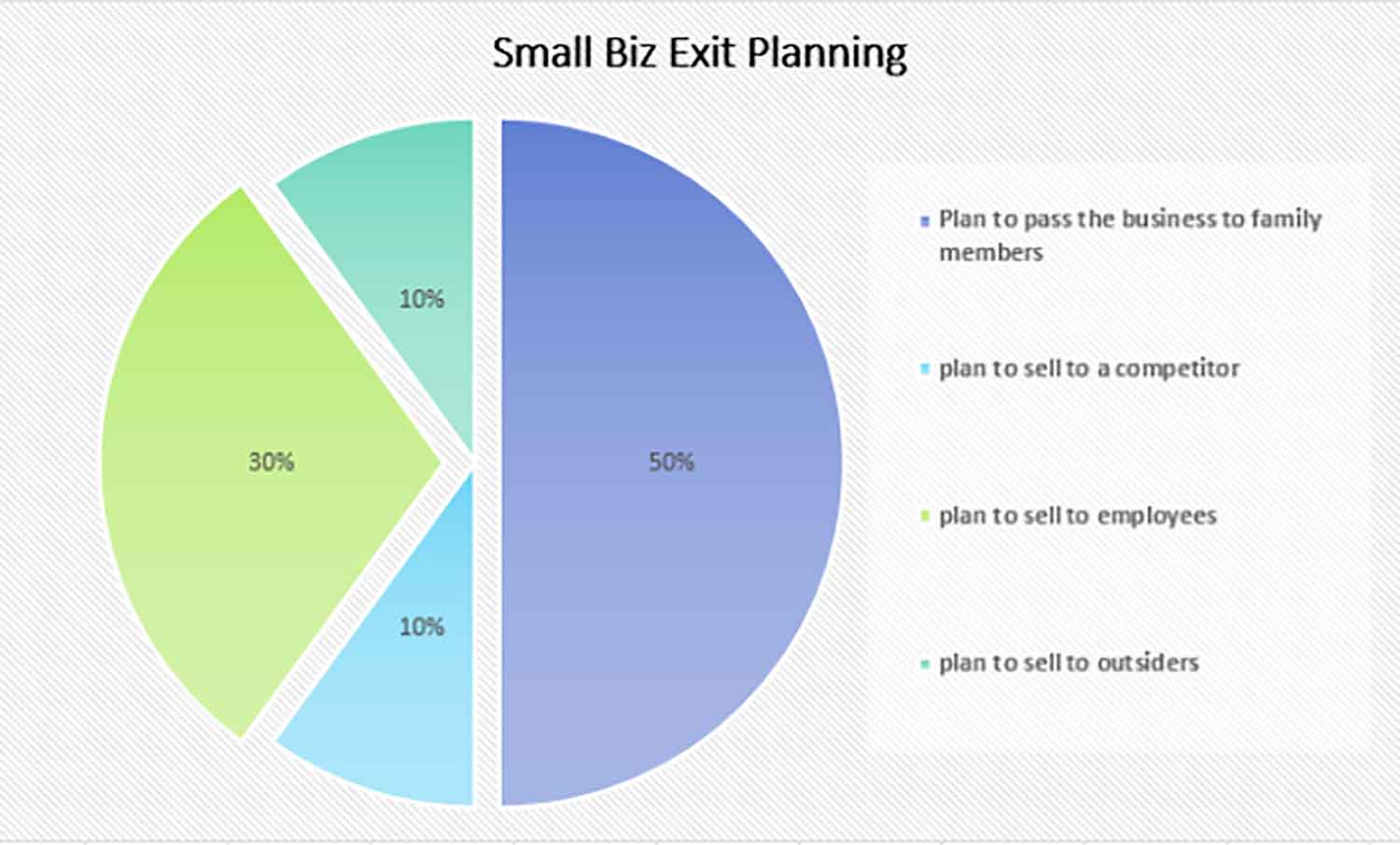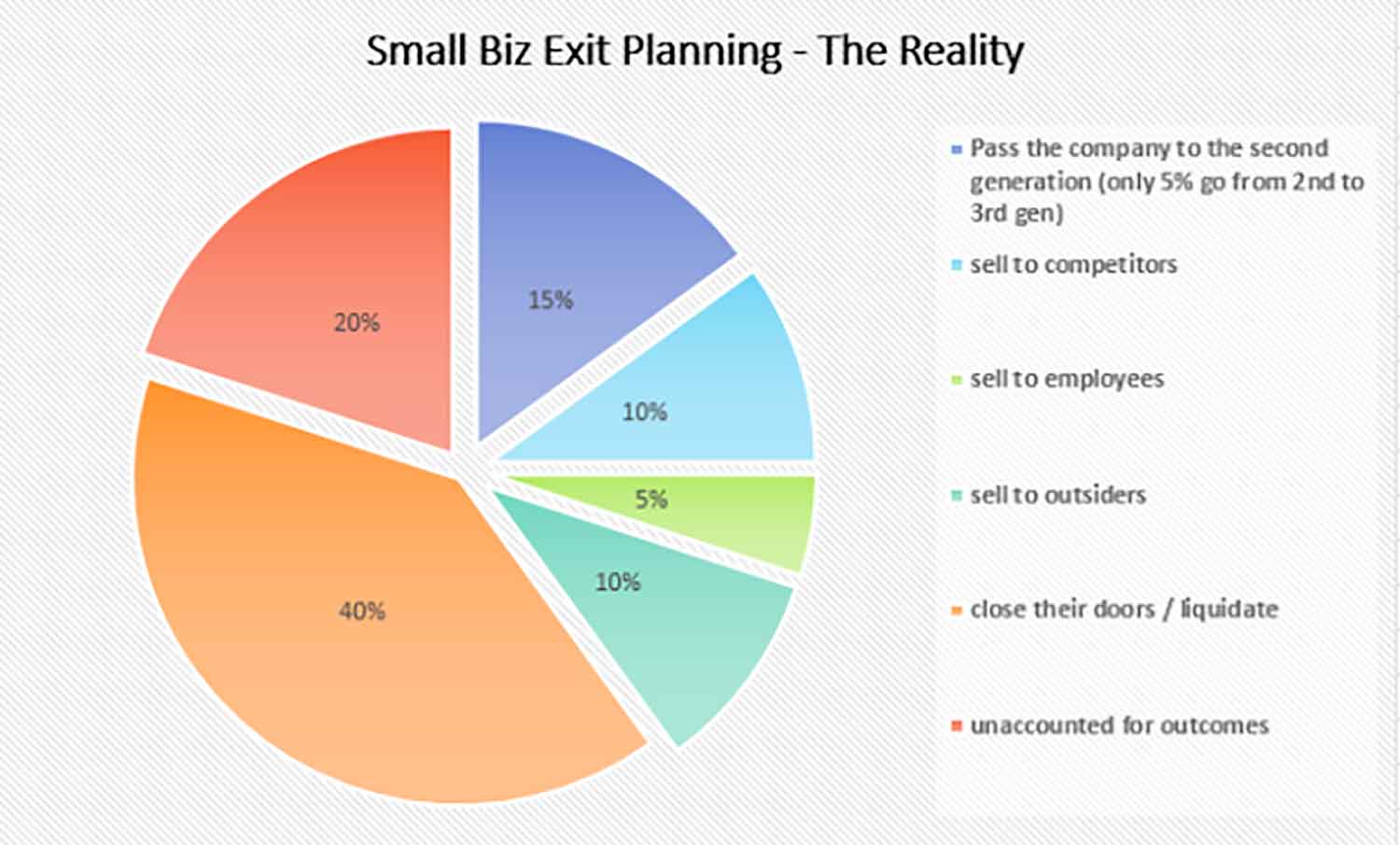Stressful economic times often cause business owners to put their heads in the sand to try to withstand the storm, or abandon their businesses completely. For some business owners, the right move might be to keep pushing forward. For others, planning for an exit is their best option. Is it time to build your exit plan?
Change is hard and scary. It’s hard to pivot when faced with uncertainty and business interruption. It’s especially hard if the business was devastated out of nowhere, and you can’t see what’s coming next. The stress and fear can be debilitating for a business owner. As a business owner, it’s crucial to figure out what is best for you and what’s best for the business. It’s great when these two things are aligned. But there are times when what’s best for the business owner might not be what’s best for the business or vice versa. It’s challenging for business owners to plan the future when it feels like they’re running on “what ifs” and gut feelings. Whether the plan is to exit soon, or in the next 10+ years, business owners need to stay focused on building their biggest asset – their business.
To plan and understand where the company can go, take an accurate assessment of where things stand now.
Now is not the time to defend past actions, and past mistakes. This is the time to take inventory of the past and make the decision to do better, to put plans in place, and follow-through. This is the time to re-imagine your business and set goals to ensure a profitable future. Dig into your business, learn how to read your P&L and how to understand your balance sheet. Talk to your team about their observations on how the business is functioning. Use historical data to build a forecast for the future, and understand how your business is trending. Make adjustments before it’s too late the effect change. It’s crucial to understand what you’re working with in order to set goals for the next 1-3-5 years. And ultimately build your exit plan.
Now is the time for exit planning, whether the exit is in the immediate future or 20 years down the road.
Now is the time to build your exit plan on your terms. I know it sounds crazy. We’re in the middle of a pandemic, an economic crisis, businesses are shut down, customers aren’t buying like they used to. Running a small business isn’t easy. During times like these, a lot of business owners think about shutting their doors. What would happen if you shut down your business tomorrow? Most business owners work harder than they have to, earn less than they should, and leave a lot on the table when they exit. Most business owners think about their exit planning when it’s too late to make real and lasting improvements.
Avoid FOMO, you’re not building a Gazelle. Making rash decisions to chase revenue may not result in long-term benefits.
Often business owners get stuck in this pattern of FOMO – fear of missing out. They want to chase the next great thing and chase the dollars. Sometimes this means that the business gets put at risk because there’s excitement behind chasing revenue. Building a sustainable business with long-term customers will help contribute to the overall value of your company. When it comes to exit planning, potential buyers want to see that the business can sustain customers long term. They want to see steady rising revenue and profits.
Proper exit planning can ensure that you as the business owner have the best possible outcome. That your business funds your exit or retirement. Small business is about building sustainable and profitable machines that contribute to local and national economies. Privately-held businesses employ millions of people, they feed families, they support each other, they build communities. You are building a legacy, and your exit planning should reflect that.
Here are some small business exit statistics – the plan vs. reality when it comes to exit planning:
50% of small business owners plan to pass their business on to family members when they’re ready to exit; 10% of business owners plan to sell to a competitor. 30% of business owners plan to sell to employees, and 10% plan to sell to outsiders. More often than not, these plans are more like dreams that never make it onto paper to put into action.

The reality is that 15% of small business owners actually pass the company to the 2nd generation. Only 5% of businesses go from 2nd to 3rd generation. 10% of small businesses get sold to competitors. Only 5% of small businesses get sold to employees, and 10% of small business owners sell to industry outsiders. 40% of small businesses close their doors when it comes time for the owner to retire or leave the business. Without an exit plan, businesses are more likely to get sold for pennies on the dollar than transition to the next generation.

Build an exit plan.
75% of business owners who exit say they wish they had done it differently. What we hear most from business owners is that their exit plan is left in a pine box. Exit planning doesn’t have to be complicated or stressful. However, it does require dedication from the business owner – and sometimes the management team – to set up properly. You have put so much of your blood, sweat, and tears into this business. Why are you willing to leave the exit up to chance?
Only 2% of business owners know the value of their business – their largest asset when it comes to exit planning. We often make the correlation between the value of your business to the value of your home. After years of spending time, money, and effort to improve your home value, would you ever leave one day and not return? One day you decide to leave your house keys on the kitchen counter, unlock all the doors, and leave your house for some stranger to come and occupy. Let that sink in… would you ever legitimately do that? Absolutely not. So why are you doing that with your business?
The first step is to get a valuation for your business.
It’s the elephant in the room that no one wants to talk about. What if my business isn’t worth what I think it is? What if all this sweat equity I have put in over the years doesn’t add up to real measurable value? It can be scary to think about that, but this isn’t the time to avoid the monster in the closet – this is the time to tackle it head-on.
The only way to know for sure, and to change the outcomes for your business is to get started, one foot in front of the other – you can do this. Being an entrepreneur means taking on the challenges that no one else will and building solutions. It’s time to build your exit plan, whether you’ve been in business for 2 years or 20 years. Not ready to get a business valuation: 4 Reasons Business Owners Don’t Get Valuations



